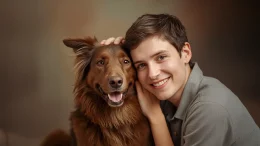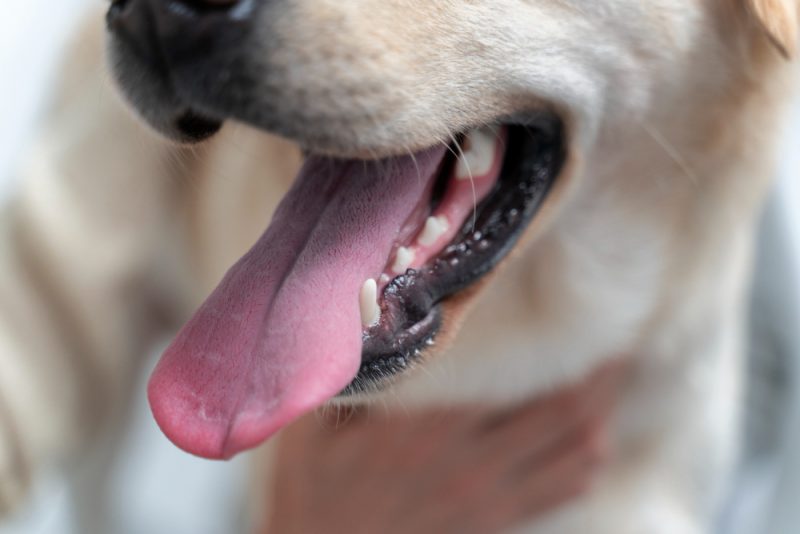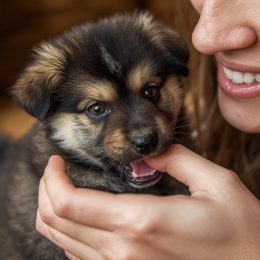
- Home
- Owning a Dog
- When Do Puppy Teeth Fall Out? A Helpful Teething Timeline for Aussie Dog Owners
When Do Puppy Teeth Fall Out? A Helpful Teething Timeline for Aussie Dog Owners

Just like human babies, puppies go through a teething stage — and if you’ve got a young pup at home, chances are you’ve already seen the signs. Chewing, biting, red gums, and the occasional baby tooth left on the floor are all part of the process. But when exactly do puppy teeth fall out? And do they lose them in a certain order?
At Jordan Dog Training, we get asked this all the time — so we’ve put together this easy-to-follow guide to help you understand what’s happening in your puppy’s mouth, and how to make teething a little easier for both of you.
🐶 How Many Teeth Do Puppies Have?
- Puppies start with 28 baby teeth (also called deciduous or milk teeth)
- Adult dogs end up with 42 permanent teeth
Some of those adult teeth come in where there were no baby teeth before — so your puppy might feel like they’re constantly teething between 3 and 7 months of age.
👶🏼 Puppy Teething vs Human Teething (Yes, There Are Similarities!)
| Teething Stage | Puppy | Human Child |
|---|---|---|
| Baby teeth erupt | 2–6 weeks old | 6–12 months old |
| Baby teeth fall out | 3–6 months old | ~6–12 years old |
| Full adult teeth by | ~7 months | Early teens |
| Teething signs | Chewing, biting, drooling | Chewing, irritability, drooling |
| Molars | Come in as adult teeth only | Have both baby and adult molars |
Just like toddlers, puppies explore the world with their mouths. They chew to relieve discomfort, learn boundaries, and self-soothe. The big difference? Your puppy doesn’t understand what they shouldn’t chew — which is where you come in.
🗓️ Puppy Teething Timeline — What Falls Out, and When
Here’s a simple breakdown of when your puppy’s baby teeth fall out and their adult teeth come in — in the usual order:
- Incisors – Tiny front teeth (6 top, 6 bottom)
- Baby teeth come in: 2–4 weeks old
- Fall out: 12–16 weeks
- Adult teeth in by: 3–5 months
👉 These are the first teeth to erupt and the first to fall out. Think of them like your puppy’s baby front teeth — perfect for nibbling and picking up small objects.
- Canines – The “fangs” (2 top, 2 bottom)
- Baby teeth come in: 3–5 weeks
- Fall out: 16–20 weeks
- Adult teeth in by: 4–6 months
👉 These are the pointy ones! If your puppy still has their baby canines while the adult ones are pushing through, keep a close eye — retained canines are common and may need to be removed by your vet to avoid alignment issues.
- Premolars – Behind the canines (6 top, 6 bottom)
- Baby teeth come in: 4–6 weeks
- Fall out: 20–24 weeks
- Adult teeth in by: 5–6 months
👉 These are used for shearing and chewing. Unlike baby teeth, adult dogs have more premolars, so you’ll see extras coming in during this phase.
- Molars – Only in adults
- No baby molars at all
- Adult molars come in: 5–7 months
👉 Molars are the large, flat-topped grinders at the very back of the mouth. They’re the last teeth to arrive and are often the most uncomfortable.
📋 Teething Overview by Age
| Age | What’s Happening |
|---|---|
| 2–6 weeks | Baby teeth erupt (in litter) |
| 6–8 weeks | Puppy has full set of 28 baby teeth |
| 3–4 months | Incisors fall out, adult ones erupt |
| 4–5 months | Canines fall out and are replaced |
| 5–6 months | Premolars fall out, adult premolars arrive |
| 5–7 months | Adult molars erupt |
| 6–7 months | Full set of 42 adult teeth usually complete |
🔍 Signs Your Puppy Is Teething
- Chewing on everything
- Drooling more than usual
- Sore or red gums
- Mild bleeding around teeth
- Whining or irritability
- Sudden interest in cold surfaces or chew toys
- Occasionally spotting a small tooth on the floor or in a toy
Teething doesn’t just cause chewing — it can also affect behaviour. Some pups get extra bitey, clingy, or mouthy during this stage. That’s completely normal.
➡️ Read more: Why Puppies Chew — and What to Do About It
➡️ Also helpful: Understanding Puppy Mouthing Behaviour
🛠️ Tips to Help Your Puppy Through Teething
✔️ Offer safe teething toys — rubber, rope, or cold/freezable toys work well
✔️ Supervise frozen treats — frozen carrot sticks or Kongs with mashed pumpkin can help
✔️ Redirect inappropriate chewing to a toy, calmly and consistently
✔️ Reinforce gentle mouthing and discourage nipping with positive training
✔️ Gently handle your pup’s mouth to prepare for brushing and vet checks
✔️ Check regularly for double teeth or signs of retained baby teeth
➡️ More advice: Our Complete Puppy Teething Guide
⚠️ When to See Your Vet
- Baby teeth don’t fall out when adult teeth come in
- Bleeding is excessive or persistent
- Your pup has bad breath, visible tartar, or red, inflamed gums
- Your dog has two rows of teeth that don’t resolve by 6 months
Some dogs — particularly toy and small breeds — are more prone to retained baby teeth and may need dental attention. If you’re unsure, it’s best to check in with your vet.
🐾 Final Thoughts from Jordan Dog Training
Puppy teething is a completely normal part of growing up — but it can be uncomfortable and sometimes a bit overwhelming. The good news is, most puppies will have their full set of adult teeth by 6 to 7 months of age.
By understanding the stages of teething and what to expect, you’ll be better equipped to support your pup, avoid unwanted chewing behaviours, and help them develop a healthy, happy relationship with being handled around the mouth.
If you need extra support with your puppy’s teething, chewing, or behaviour — our team is here to help. We offer group classes, private training, and expert advice from experienced trainers and behaviourists.
Disclaimer: The information provided in this blog is intended as general guidance and is based on our experience as dog trainers and behaviourists. It is not veterinary advice and should not replace consultation with a qualified veterinarian. If you have any concerns about your dog’s health, wellbeing, or mobility, we always recommend speaking with your vet to ensure the best care for your dog.

Justin Jordan
Master Trainer
- In-home behaviour modification consultations
- Puppy schools
- Obedience classes
- Specialist training
- Media enquiries
- Trainer opportunities
- Supplier enquiries
- Guest appearances
















